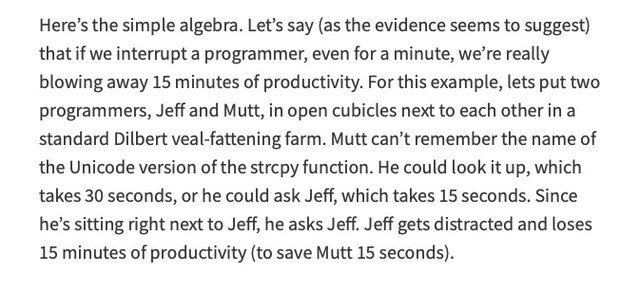
Before paul graham’s essay was Joel Spolsky’s blog (cofounder of Stack Overflow and Trello). This blog post was so iconic when I was at Red Hat that we used it as a guide when designing the fit-out of the Brisbane office that expanded over additional floors over the years. Private pods and offices rather than open plan. It was bliss. Tech Threads
threads.net